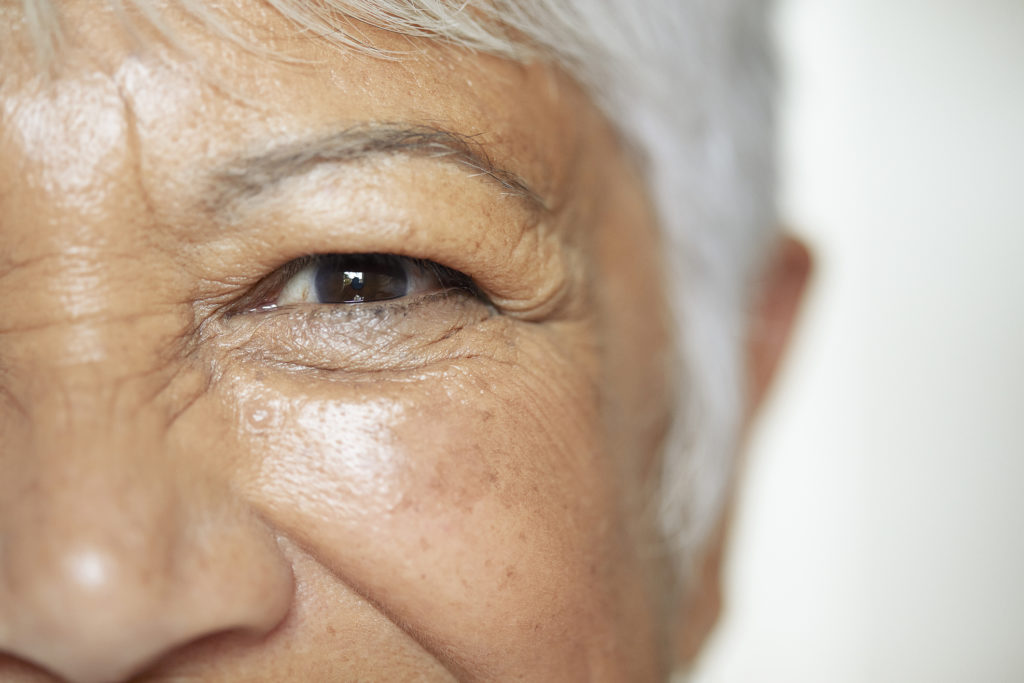
It’s the time of year again when we start to make about our resolutions for healthy living. Wouldn’t it be great if this resolution could help protect your eyesight? Well, in fact, healthy vision is one of the most important things you can do to be healthy and happy! That’s why today we’re going to share with you 10 eye-healthy resolutions that will not only improve your health but also make you feel better all around.
Why healthy vision is so important
There are many reasons why healthy vision is so important. Healthy eyesight allows us to see the world around us, enables us to work and earn a living, and helps us to connect with our loved ones. In addition, healthy vision is necessary for many everyday activities, such as reading, cooking, and driving and is critical for overall well-being. When we can’t see clearly, it can be difficult to participate and enjoy life in its entirety.
Get an eye exam and make sure you’re wearing the right glasses
Comprehensive annual eye exams are of the utmost important in preventing and diagnosing vision problems. During your exam, your optometrist will check for common eye diseases and conditions, such as glaucoma, cataracts, and diabetic retinopathy. They will also test how well you see both close-up and far away.
It’s often easier to prevent than to treat an eye disease, so be sure to get your annual check-up.
If you already wear glasses or contacts, be sure to bring them with you to your appointment. Even if you don’t need glasses now, chances are that this will change as you age. Make sure that the glasses or contacts that you do wear fit comfortably and allow for clear vision without any issues such as blurring, double vision, or headaches.
If you don’t have an eye doctor, we can help you find one in your area. The ZEISS Online Vision Screening examines vision in five different tests and thus provides an initial indication of how sharp vision, color, and contrast perception are.
Give your eyes a break from digital screens
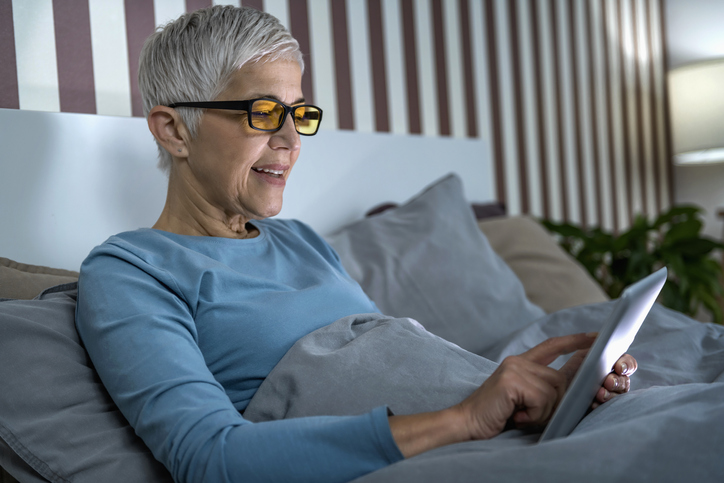
We all know that staring at a computer screen, phone, or TV for too long isn’t good for our eyes. But what many of us don’t realize is just how bad it can be. When we stare at a digital screen, we’re constantly blinking which dries out our eyes and causes eye fatigue. This can lead to headaches, blurry vision, and even dry or irritated eyes.
To avoid this kind of eye strain, try taking a break from digital screens every 30 minutes by looking at an object that’s about 20 feet away for around 30 seconds. This will allow your eyes to rest while still being functional in case you need them quickly! In addition, make sure that the light from your digital devices isn’t too bright. The brightness of a screen should never be above its surroundings, such as streetlights or lamp posts!
Protect your eyes from blue light
Most of us know that UV light is bad for our eyes, but we might not realize just how potentially damaging blue light can be. Blue light has been linked to a number of serious eye conditions such as macular degeneration and cataracts. In fact, it’s estimated that 80% of people with healthy vision will develop some form of cataracts by the time they’re 80-years old.
Luckily, you can protect your eyes from blue light in just a few simple steps! When indoors, make sure that you’re not looking at a computer, phone, or TV screen without wearing eyeglasses with blue light protection, such as ZEISS BlueGuard. At night (when our bodies produce melatonin to help us sleep), avoid using your evening electronics as much as possible and don’t forget to turn off those bright overhead lights! When outdoors make sure to protect your eyes by either wearing sunglasses with full UV protection or ZEISS clear lenses, which all have sunglass-level UV protection.
Eat healthy foods for better eye health
One of the most important things you can do for healthy vision is to eat healthy foods. Foods that are high in vitamins and minerals, such as leafy green vegetables and fruits, are essential for keeping your eyes healthy.
Some nutrients that are especially important for healthy vision include Vitamin A, vitamin C, and zinc. These nutrients play multiple roles in the functioning of your eyes such as helping to protect cells from damage (including retinal nerve cells), preventing inflammation, and supporting healthy night-vision.
Here’s a tip! Eat more blueberries! Blueberries get their deep color from a pigment called anthocyanin. Studies show pigment has been shown to help protect the eyes from damage caused by UV and blue light, as well as improve night vision.
Drink plenty of water to keep your eyes hydrated

Did you know our eyes are approximately 80% water? Well, they are! Water is important for our whole bodies to function properly, and it’s especially vital when you’re trying to protect your vision.
Water helps lubricate the cornea (the clear membrane in front of your eye), keeps tear film healthy, and washes away debris. When our bodies are dehydrated, it can cause a number of problems including dry eyes and eye fatigue. In fact, it’s recommended that we drink around eight glasses of water per day!
If you’re having trouble remembering to drink enough water, try using a reusable water bottle with a built-in reminder. These bottles will alert you when it’s time to drink more water and can help ensure that your eyes stay healthy!
Exercise regularly, which can help prevent or delay age-related vision loss
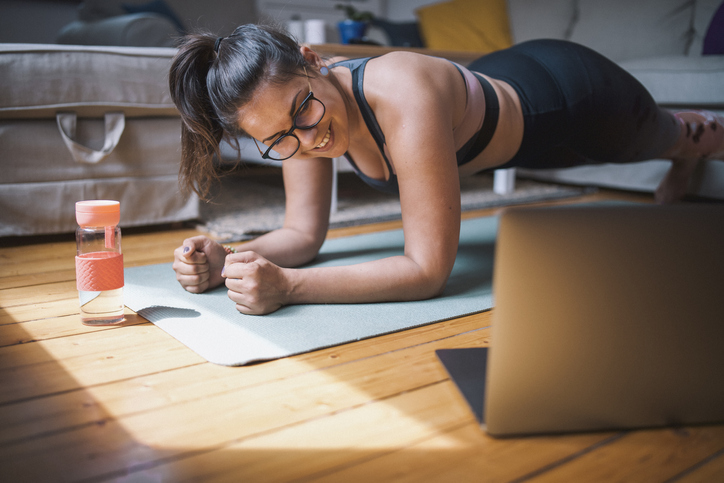
Did you know that exercise can help prevent or delay age-related vision loss? It’s true!
One study showed that people who exercised regularly had a reduced risk by 70% in developing age-related macular degeneration (ARMD) than those who didn’t. And, if they did develop ARMD, the progression of the disease was slower than in inactive people.
Some of the best exercises for healthy eyes are aerobic, which include walking, jogging, swimming and biking. These types of activities help to improve blood flow throughout your body including your eyes! So pick up that water bottle or gym bag and start exercising today!
You can exercise your eyes too.
Just like the rest of our body, our eyes need exercise to stay healthy. This can be done by doing some simple eye exercises a few times a day. Here are a few of our favorites:
– Look up and down, then left to right
– Focus on an object far away for a few seconds, then focus on an object close by
– Roll your eyes in a circle (clockwise and counter clockwise)
– Close your eyes as tightly as you can for five seconds, then release
– Blink quickly 20 times
Sit up straight when you work at a computer – this will reduce eyestrain and fatigue
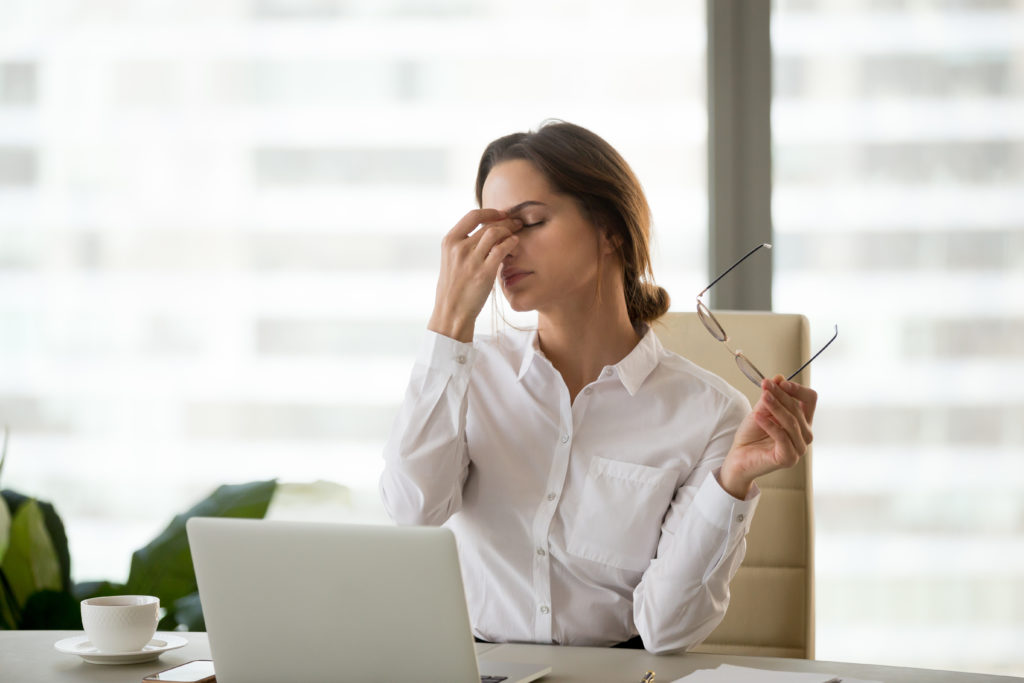
Maintaining healthy eyesight is even more important when you’re staring at a computer screen for hours on end. As we all know too well, poor posture can lead to lots of problems including neck pain or backaches. It’s also terrible for healthy vision because it places a lot of stress on the eyes.
One easy way to reduce eyestrain and fatigue when you’re working at a computer is to sit up straight with your shoulders back. You may also want to consider using a glare-reducing screen protector or anti-glare glasses. And, lastly, make sure to take breaks every 20 minutes to give your eyes a rest.
When we spend long periods of time focusing on small fonts and images, our vision can become strained and fatigued as the muscles in our eyes tire out from constantly working to focus on these objects. This type of eyestrain is called Computer Vision Syndrome, and it is a serious problem.
In fact, computer vision syndrome has become so common that it affects up to 90% of the people who spend three hours or more per day at a computer! To help reduce symptoms of this condition, make sure you take regular breaks from your screen as well as focusing on larger objects
If you suffer from dry eye, treatment can help with overall vision.
Dry eye affects nearly 30 million Americans each year, and can cause various symptoms including pain or irritation in the eyes. It occurs when your tears are not healthy enough to lubricate your eye properly, which leaves them feeling dry and irritated.
The symptoms of dry eye don’t always feel like dryness. Sometimes they are more like blurriness, stinging, burning, or tearing. And, unfortunately, this condition does not always go away on its own.
If you suffer from chronic dry eyes, there is good news! There are a number of treatment options available for people with dry eyes. They include: warm compresses, eye drops or ointments that add moisture to the eye, and healthy lifestyle changes such as blinking more often and avoiding high temperatures. Additionally there are in-office treatments and prescription medications that can help. So talk to your eye doctor about the best treatment plan for you.
Protect your eyes from UV damage
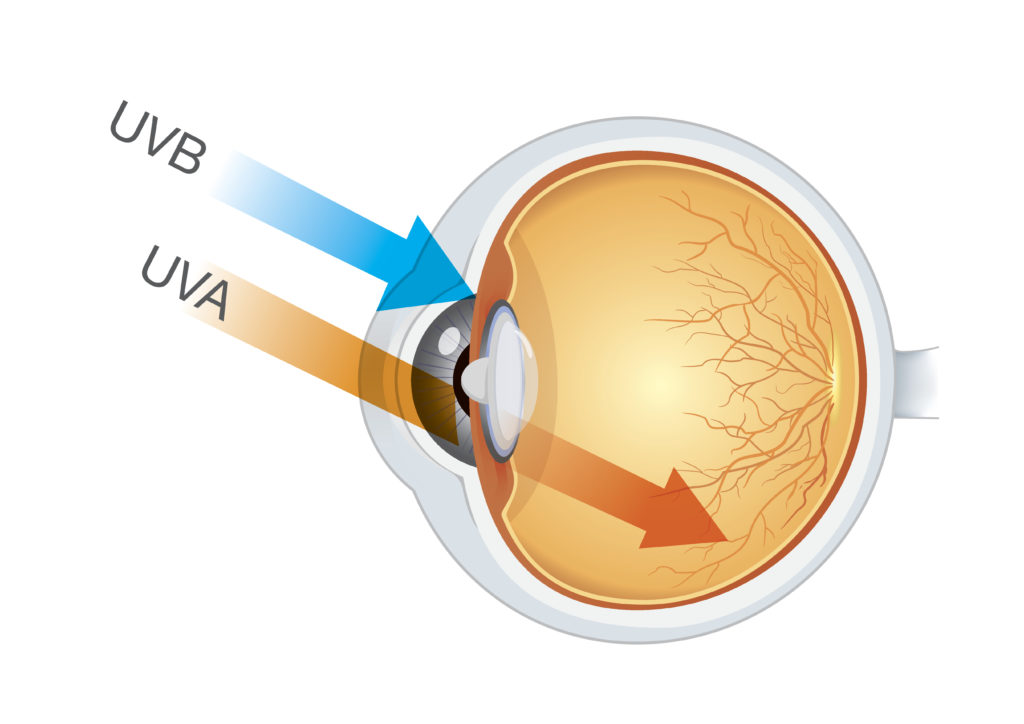
Ultraviolet (UV) rays can cause serious damage to your eyes, and increase the risk of developing macular degeneration, cataracts and other eye problems over time. UV exposure also increases a person’s chance for skin cancer on their eyelids as well as wrinkles around the eyes, which is why it is so important to protect your eyes from UV rays.
The best way to protect your eyes from the sun’s harmful UV rays is to either wear sunglasses that have both UVA and UVB protection or eyeglasses that have sunglass-level UV protection as part of the lens material, such as ZEISS UVProtect Lenses.
Make sure you have adequate lighting when you’re reading
If you often find yourself straining to see the words on a page, it may be because you’re not getting enough light. When we read, our eyes should be focused on an object about 18 inches away from us. If there is not enough light in the room, our eyes have to work harder to focus and this can lead to eyestrain and make it harder for us to read.
In order to reduce strain when you’re reading, make sure there is a good light source keeping the area bright enough so that your eyes don’t have to work too hard. Try using natural lighting from a window or lamp with an incandescent bulb, as they provide more light than a fluorescent bulb.
If you’re reading in the dark, try using a book light or clip-on light to help direct more light towards the page.
Start with an eye exam
Even if you don’t have any symptoms of an eye problem, it is important to get your eyes checked by an eye doctor at least once a year. This is because many eye problems, such as cataracts and glaucoma, do not have any symptoms until they are quite advanced. So schedule your yearly eye exam today and start the new year off with healthy eyes! Find an eye doctor near you here.
This blog offers some great resolutions for keeping your eyesight healthy simple habits like regular eye exams and screen breaks really do make a difference. It’s a reminder that small steps can have a big impact on our overall well-being. In the same way, treatments like skin tag removal Houston may seem minor but can boost comfort and confidence. Taking care of yourself, from your eyes to your skin, adds up to a healthier, happier you.
Local Red Deer roof repair contractors you can trust. We provide detailed assessments, clear quotes, and professional repairs for residential and commercial roofs. New Construction Roofing services in edmonton Stop your roof leak before it ruins your ceiling. Our Red Deer repair team specializes in precise leak detection and lasting solutions.
Sell your house faster and for more in BC. Our full-service marketing includes professional photography, virtual tours, and multi-channel advertising. professional realtor in BC Your trusted partner to sell a house in British Columbia. We provide honest advice, skilled negotiation, and a personalized plan to meet your timeline. Turn your BC property into a hot listing. We use cutting-edge marketing and staging techniques to showcase your home’s best features and attract offers.
Planting for the Okanagan seasons. Our Kelowna nursery stocks the right plants for spring color, summer bounty, and year-round evergreen structure. okanagan scapes Quality plants grown for Kelowna gardens. We take pride in offering healthy, robust perennials, ornamental grasses, and climbing vines for your home. Create a thriving edible garden in Kelowna. Start with our selection of berry bushes, fruit trees, vegetable seedlings, and aromatic herbs.
Looking for custom millwork in Surrey? We provide full-service design, CNC fabrication, and professional installation for commercial and institutional projects. Custom Countertops & Doors Surrey Surrey-based millwork shop specializing in commercial interiors. We work with architects and contractors to deliver custom woodwork on time and on budget. Enhance your corporate identity with custom millwork in Surrey. We fabricate branded reception areas, boardroom tables, and elegant office built-ins. Durable, custom millwork solutions for high-traffic commercial spaces in Surrey. Specializing in healthcare, educational, and public sector installations.
Discover the latest outerwear styles at Jackettrend—your go-to destination for trendy jackets, premium quality, and standout fashion. Shop Jackettrend for modern, stylish jackets designed to elevate your look with comfort, durability, and trend-setting appeal. Stay ahead of fashion with Jackettrend’s curated collection of jackets for every season and every style. Jackettrend offers premium jackets crafted with quality materials and contemporary designs—perfect for any occasion.
My recent beauty haul arrived with several broken items and the online return portal kept glitching every time I tried to upload photos. I was quite disappointed because I wanted to use the new palette for a special event this weekend and needed a quick exchange. Finding the help at Ulta customer service was a total lifesaver because I got the right info to reach a person in the claims department. They were very understanding and sent out a replacement package via express shipping. I am very happy with how they handled the situation once I got through.
Great tips on eye health! Though, honestly, I found that pairing daily habits with IV therapy sessions gave a tangible boost in focus and energy that even the best routines couldn’t achieve alone. Vitamin infusion therapy has some surprisingly immediate effects on energy levels, and it’s been particularly helpful for people who struggle with long hours of screen time. Has anyone else noticed a sudden lift in mental clarity after such treatments? For those intrigued by the idea, here’s a spot to learn more about IV therapy. Truly, it’s remarkable how targeted nutrients can complement daily eye care efforts.